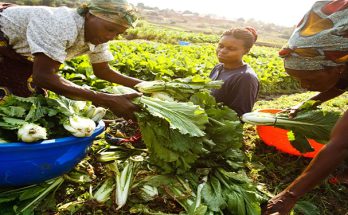 The conference which is ongoing in Gaborone is attended by high level delegates from key financial and economic global institution and Central bank governors, Finance and Trade ministers as well as policy and economic think tanks from all the 54 African countries. Officially opening the caucus, Vice President Mokgweetsi Masisi said collaborative efforts were crucial in Africa’s economic transformation quest.
The conference which is ongoing in Gaborone is attended by high level delegates from key financial and economic global institution and Central bank governors, Finance and Trade ministers as well as policy and economic think tanks from all the 54 African countries. Officially opening the caucus, Vice President Mokgweetsi Masisi said collaborative efforts were crucial in Africa’s economic transformation quest.
Masisi said a key challenge common across the African continent was how to generate more and better employment opportunities. He said the high economic growth rate witnessed in some part of African continents was still not significantly translated into improvement and wellbeing of majority their citizens. “To address this twin challenges it is critical that inclusive growth be made an integral part of all our development strategies and economic pathways,” he said.
Masisi further indicated that all stakeholders including government; donor agencies and the private sector must target and underline their investment plans towards a shared goal of sustainable and inclusive growth. “To facilitate this, public sector investment must be targeted towards reducing real and perceived business risk in enabling financing and improvement in infrastructure thus attracting private sector investment,” he said.
At the top of economic sector agendas, the caucus placed the agricultural potential as the next African turning point. The Chairman of African Caucus, Botswana Minister of Finance & Economic Development, Kenneth Matambo told attendants that it was time for Africa to rip off from development agendas and strategies adopted at different economic and governance forums. He said Africa needed to collaborate in realizing their full agricultural potential.
“Collective efforts in indentifying the best solutions to archive high levels of production and increased export market share will ensure that Africa emerges victorious in attaining food security and significant employment creation and consequently building Africa’s economic sustainability,’’ said Matambo.
Matambo said African governments made a commitment under the African Union agenda 2063 to work towards a modern and productive agriculture by using science and technology, innovation and indigenous knowledge to create a profitable and attractive Africa. “It is now time to work hard together in order to realize this aspirations,” he said.
The two-day forum held under the theme: “Economic Transformation and Jobs Creation: A focus on Agriculture and Agribusiness.”At the conference over 200 delegates discuss issues of mutual interest and take common position to present to the Heads of the Bretton Woods Institutions.
The caucus provides a platform on which African countries can articulate their positions jointly and guide their development partners on Africa’s key priority areas in their development agenda. Also under the discussion is Agricultural Policy Foundations, financing, land Tenure and Markets, Technologies for Agricultural Development and Climate Smart Agriculture , the role of private sector, Agricultural value chains and sustainable jobs creation for youth and women, fiscal policy to support agricultural transformation in Africa, and financial deepening and Inclusion to support Agricultural Development in Africa.
The findings of the deliberations will inform the 2017 Memorandum of African Governors to the Heads of the Bretton Woods Institutions, being the president of the World Bank Group ,Dr Jim Yong Kim and the Managing Director of the international Monetary Fund ,Ms Christine Lagarde. Matambo concluded by reminding fellow African governors that agriculture is recognized as the single largest employer in the world, providing livelihoods to about 30 percent of the world population.
He is of the view that their governments can create sustainable jobs especially for women and youth, and guarantee food security along with knowledge and entrepreneurship, and by responding to and creating innovative ways to meet the needs of the agriculture sector. The African Caucus was established in 1963, as the “African Group,” with the objective of strengthening the voice of African Governors in the Bretton Woods Institutions (BWIs), i.e. the International Monetary Fund (IMF) and the World Bank Group (WBG), on development issues of particular interest to Africa.



